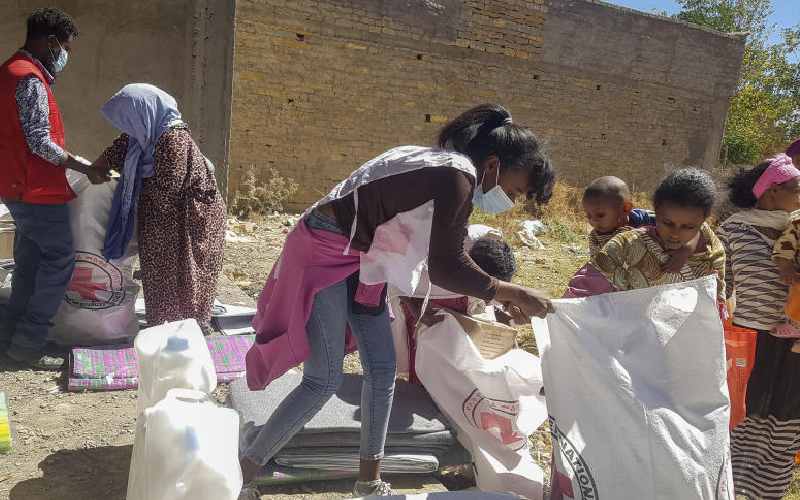×
The Standard e-Paper
Stay Informed, Even Offline

Ethiopian Red Cross Society (ERCS) volunteers hand over essential household items to internally displaced people sheltering in Mekele.
The situation in Ethiopia’s Tigray region is slowly getting out of hand. Although Ethiopian Prime Minister Abiy Ahmed had November last promised a swift operation that would topple Tigray People’s Liberation Front (TPLF), things are slowly becoming nightmarish and there is a veritable risk of an all out war in the country.